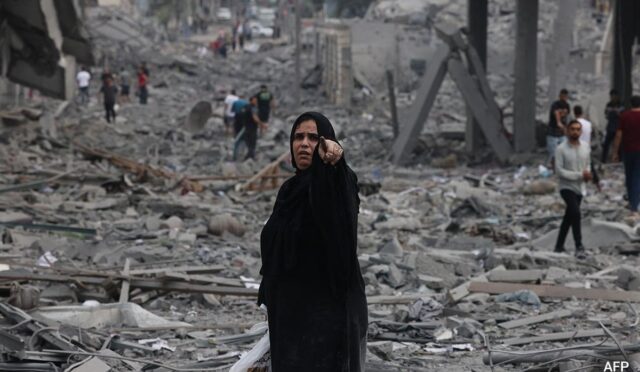Israel’s Support for Armed Groups in Gaza: A Controversial Admission
Prime Minister Benjamin Netanyahu has publicly acknowledged Israel’s involvement with an armed group in Gaza that stands in opposition to the militant organization Hamas. This revelation follows remarks from a former Israeli minister suggesting that the government has been facilitating arms transfers to this group. Reports from both Israeli and Palestinian news sources identify this group as affiliated with a local Bedouin tribe, led by Yasser Abu Shabab, who is described as operating within the Rafah region.
The European Council on Foreign Relations (ECFR) has characterized Abu Shabab’s faction as a “criminal gang” engaged in various illicit activities, including looting humanitarian aid trucks. This characterization echoes the sentiments shared by former Defense Minister Avigdor Liberman, who criticized the government’s decision to arm what he referred to as a band of criminals, echoing concerns about the ethical implications of such a policy.
Netanyahu Defends the Strategy
In a recent social media video, Netanyahu defended the government’s strategy, suggesting that it is a necessary measure for protecting Israeli lives by undermining Hamas’s control. He questioned the backlash against Liberman’s comments, asserting that empowering a faction that opposes Hamas is beneficial. Netanyahu’s rationale lies in the belief that such support could ultimately save lives, particularly those of Israeli soldiers engaged in the ongoing conflict.
This perspective has sparked debate among experts who note the complexities of engaging with factions like Abu Shabab’s. Michael Milshtein, a Palestinian affairs analyst, pointed out that the Abu Shabab clan, while part of a tribe that intersects with Gaza and Egypt, has deep ties to criminal enterprises. This dual existence complicates Israel’s narrative as they seek to frame their actions as a strategic necessity.
The Profile of Abu Shabab’s Group
Milshtein highlighted the problematic nature of aligning with Abu Shabab’s group, which has recently faced condemnation from its own leadership for being labeled as Israeli collaborators. This internal strife indicates the precariousness of Israel’s strategy, as aligning with groups that have questionable loyalties can backfire, particularly when these factions are branded as ‘gangsters’ engaged in illicit activity.
Reports suggest that Abu Shabab has a criminal past, having faced imprisonment under Hamas for drug-related offenses. Adding to the group’s complexity, one of his relatives was reportedly killed by Hamas during a crackdown targeting individuals seen as threats to their operations. This interplay of violence and betrayal showcases the dangerous landscape in which these groups operate.
Escalating Tensions Between Hamas and Abu Shabab’s Group
The conflict between Hamas and Abu Shabab’s group further complicates the regional dynamic. Hamas, which has maintained control over Gaza for nearly two decades, accused Abu Shabab’s group of betrayal and theft, asserting that they have colluded with Israeli forces to plunder aid supplies. Such claims highlight the deep-seated tensions and the propaganda war that occurs alongside the physical conflict.
Hamas also expressed concerns about the emerging humanitarian crises, blaming the activity of these ‘looting gangs’ for exacerbating the suffering faced by Palestinian civilians. This narrative serves to rally public sentiment against any faction perceived to be cooperating with Israel, illustrating the intricate web of alliances and enmities that define the Gaza landscape.
Public Perception and the Reaction of Abu Shabab’s Group
In response to the allegations, Abu Shabab’s group, known as the Popular Forces, announced via social media that they are not, and will not be, tools of the Israeli occupation. They claimed their weapons are not advanced and have been acquired through community support rather than external aid. This declaration seeks to legitimize their actions and distance themselves from the accusations tied to the broader conflict.
Milshtein described Israel’s effort to support such groups as speculative, suggesting it is more of a fantasy than a viable strategic approach. He expressed concern that this precarious alliance could lead to unforeseen catastrophic consequences, highlighting the risks inherent in such a controversial military strategy.






